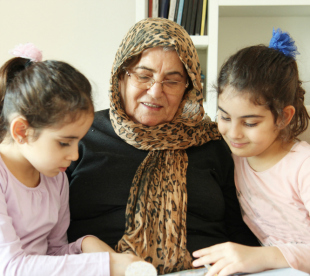The idea of an ethical or a spiritual legacy, as opposed to the material goods we leave behind, can be traced back to the first book of the Jewish and Christian Bibles, in which the dying Jacob gives his children what in Hebrew is called his tzava'ah, or spiritual estate. Passing along the wisdom, advice, and blessings of elders is a familiar tradition in other cultures as well. Native American friends tell of grandparents teaching children about the traditional ways so that they won't be lost.
But what exactly is worth passing on? And how do you do it? One way is to tell the story of your life, the story of what is most important to you and how you know it is important. Stories teach, stories heal, and they are easy to remember. The great contemplatives have all used parables to teach complex and paradoxical truths. And each one is connected to the bigger story.
To Practice: Write down or tell someone else the story of your life, what is most important to you, and how you know it is important. Consider whether you successfully conveyed your ethical or spiritual legacy. If you did not do so in the first version, make sure to include the wisdom, advice and blessings you would like to convey in your next telling.
— Ram Dass, Mirabai Bush in Walking Each Other Home